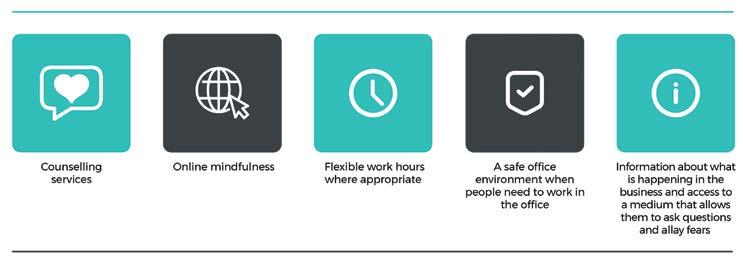THOUGHT LEADERSHIP ARTICLE
Rising to the challenge of what it means to be a responsible business Paul Rackstraw, Managing Director @ Futuregrowth
T
he COVID-19 pandemic has raised many challenges for companies over the past few months. It has also highlighted the critical role firms play in the broader fabric of society and how much they can, and should, contribute as responsible businesses. From supporting staff and facilitating comfortable remote working conditions through to providing other stakeholders with a seamless experience of the business through potentially disruptive lockdown conditions, companies have had to step up to the challenge of navigating the changes imposed on them by this unprecedented health crisis. Business responsibility is not a new concept. It is a process and culture in an organisation where the management and staff choose to take responsibility for all their actions and ensure that they have a positive impact on everything they do when it comes to: - the environment - the communities within which they operate - transformation - their clients - their staff and shareholders - their suppliers - the industry in which they operate With a growing proportion of clients and investors now prioritising responsible and ethical behaviour in where they choose to work, companies are coming to understand that they cannot adopt a box-ticking approach and need
10
|
to embrace being a responsible business in a genuine way. It’s more than deciding where to spend money Being a responsible business is not only about how you spend your profits but, more importantly, how you make them. Before doing anything, a company needs to approach all decisions and actions with the ethical consequences top of mind. If the action or decision has the potential to cause harm to society or the environment in which the company operates, it should be considered socially irresponsible. Looking at the world through a responsible business lens will also guide you in the partnerships you are willing to establish. Being responsible and ensuring the company you run has a bigger purpose than merely generating profits is also about tackling the challenges facing society as a whole. There are a few main areas you need to consider when looking at what it means to be a responsible business. - how you do business with clients - how you can contribute to the betterment of the industry in which you operate - how you should treat clients/staff/shareholders - how you should treat the environment - how you should respond to specific social requirements in the countries/environments in which you operate
FINANCIAL MAIL ESSENTIALS • ABC of BEE 2020/21
These are tough asks and have an impact on all aspects of how you do business. For example, how do you approach the rules and regulations that govern your industry? Do you make sure you are always on the right side of the regulations, operating within the spirit of the law, or are you always looking for grey areas and loopholes that you can exploit? Are you always looking at what you can get away with as a business, or do you ask yourself the following question: If you read about an action or decision your business had taken in the headlines of the newspaper, would you be embarrassed or proud of it? Partner with clients for the long term To be a responsible business, in our case as an asset manager, you need to view every client investment as a performance promise and a commitment to making a difference in their life by improving their living conditions, for example facilitating access to water or electricity or enabling them to retire respectably. Several businesses view their clients only as a way of making money, prioritising how much profit can be extracted from each client. This short-sighted approach does not take the longterm best interests of the business or your client into account. Your business is far more likely to benefit from treating each client as a long-term investment and as a partnership with yourself. To establish whether you are treating customers purely as profit generators, you need to ask yourself the following questions: - If there is an error, will you always make good on it for the client, even if they are not aware of it? - If pricing has changed and your client is still paying too much for historical reasons, will you adjust the client fee without being prompted by the client? - If you have underperformed, or have not delivered on your client promises, will you consider reimbursing them a portion of the fee?











